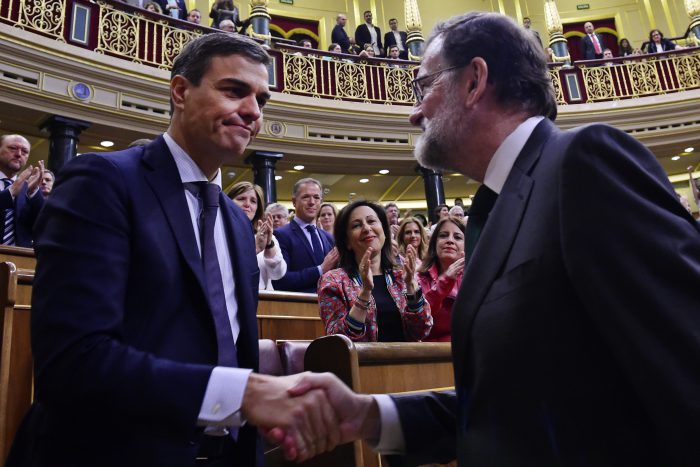MADRID — Socialist party leader Pedro Sanchez is set to become Spain’s new prime minister after a no-confidence vote in parliament Friday unseated Mariano Rajoy’s conservative government. The incoming leader vowed to address Spaniards’ “social urgencies” after years of austerity.

Sanchez, until now the leader of the largest opposition party, could be sworn in by King Felipe VI as early as Saturday and appoint his Cabinet over the coming days.
Sanchez, who will be Spain’s seventh prime minister since the country’s return to democracy in the late 1970s, arrives in power after a spectacular turnaround in his political fortunes.

Get daily National news
He was ousted by his own party’s heavyweights in 2016 over back-to-back losses in general elections and after he tried to block Rajoy’s bid to form a government.
The former economics professor and career politician regained the Socialists’ leadership last year.
The incoming prime minister has outlined that his priorities will be social issues — such as measures to help young people and the elderly — before calling elections, though he hasn’t said when there might be a vote.
Sanchez told reporters Friday that he was “aware of the responsibility and the complex political moment of our country.”
He vowed to build consensus among political parties to “transform and modernize” Spain and “address the social urgencies of many people who suffer precariousness and inequality.”
Opponents of Rajoy have complained that Spain’s recovery came at the expense of austerity measures, just as he successfully stood up to Catalan secessionists.
Sanchez faces a tough time catering to demands from small parties whose votes he captured in the no-confidence motion, among them Catalan separatists.
The support of leftist and nationalist parties for ousting Rajoy won’t necessarily lead to parliamentary backing for Sanchez’s government and could produce a political stalemate.
Also, the center-right Ciudadanos (Citizens) party — which has been leading recent opinion polls — is demanding a snap election and is vowing fierce opposition to Sanchez.







Comments